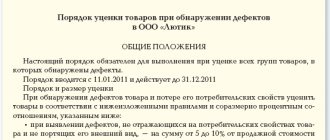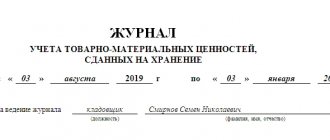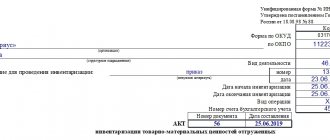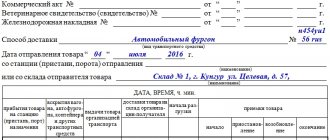As some scientists say: “Our whole life consists of numbers.” They accompany a person everywhere and always. Every day a person makes various calculations and does not even notice it. But there are people who have made working with numbers their profession. These are not mathematicians, but accountants. The most difficult and responsible area of work is inventory accounting.
Meet the accountant
Maintaining accounting records is an obligation for organizations enshrined in law.
There are practically no privileges or exemptions from this requirement. Therefore, someone in the company must be responsible for the work of the financial department. In large companies, accounting work is performed by an entire structural unit. In small ones, one person can handle it. And some institutions even outsource accounting to third-party companies. For example, centralized accounting departments in the public sector and outsourcing companies in a commercial environment.
But regardless of who will do the accounting: a third-party company or a full-time employee, the requirements for accountants are determined by law. Who is an accountant?
An accountant is a responsible employee whose responsibilities include documenting the facts of the financial and economic activities of an organization in accordance with established standards and requirements. In essence, the employee registers the operations and facts of the company’s life in specialized forms of documents (primary documents, books, magazines). And on the basis of accounting registers it compiles reports.
Use a free accountant job description template from ConsultantPlus.
Job description of an accountant for inventory accounting
_____________________________________________________
| I APPROVED _____________________ _____________________ _____________________ __.__.20__ |
Job Description No. ______
inventory accountant
| G. ________________ | "___" _____________ 20__ |
1. GENERAL PROVISIONS
1.1. This job description defines the functional duties, rights and responsibilities of an inventory accountant.
1.2. An inventory accountant belongs to the category of specialists, is appointed to the position and dismissed from the position in the manner established by the current labor legislation by order of _________ on the recommendation of ___________________.
1.3. The inventory accountant reports directly to ___________________.
1.4. During the period of temporary absence of an inventory accountant, his duties are assigned to _________________ by order _________.
2. QUALIFICATION REQUIREMENTS
2.1. A person, _______________________________________, is appointed to the position of inventory accountant.
2.2. An inventory accountant must know:
– legislative acts, regulations, orders, orders, guidelines, methodological and regulatory materials on organizing accounting of property, liabilities and business transactions and reporting; – forms and methods of accounting in the organization; – plan and correspondence of accounts, in particular for inventory accounting; – organization of document flow in this area of accounting; – the procedure for documenting and reflecting in the accounting accounts the receipt and release of inventories; – methods of economic analysis of the economic and financial activities of an organization; – rules for operating computer equipment; – Labor regulations; – labor protection rules and regulations; – economics, labor organization and management; – labor legislation.
3. JOB RESPONSIBILITIES
Accountant for inventory accounting:
3.1. Performs accounting work in accordance with the requirements of current legislation in terms of accounting for inventories owned by the organization, capitalization of inventories, calculation of the actual cost of inventories, etc.
3.2. Receives and controls primary documentation in this area of accounting and prepares it for accounting processing.
3.3. Reflects inventory accounting transactions on the accounting accounts.
3.4. Prepares reporting estimates based on the actual cost of inventories, taking into account all costs.
3.5. Calculate taxes arising on this site.
3.6. Participating:
– in conducting an economic analysis of the economic and financial activities of an organization based on accounting and reporting data in order to identify intra-economic reserves, implement a savings regime and measures to improve document flow; – in the development and implementation of progressive forms and methods of accounting based on the use of modern computer technology; – in the development and implementation of measures aimed at maintaining financial discipline and rational use of resources; – in formulating the economic formulation of problems or their individual stages, solved with the help of computer technology, determines the possibility of using ready-made projects, algorithms, application software packages that allow the creation of economically sound systems for processing economic information; – in conducting inventories of inventory items.
3.7. Provides managers, auditors and other users of financial statements with comparable and reliable accounting information on the relevant area of accounting.
3.8. Develops a working chart of accounts, forms of primary documents used for registration of business transactions for which standard forms are not provided, as well as forms of documents for internal accounting reporting, participates in determining the content of basic techniques and methods of accounting and technology for processing accounting information.
3.9. Prepares data on the relevant area of accounting for reporting, monitors the safety of accounting documents, draws them up in accordance with the established procedure for transfer to the archive.
3.10. Performs work on the formation, maintenance and storage of a database of accounting information, makes changes to reference and regulatory information used in data processing.
3.11. Performs individual official assignments from his immediate superior.
4. RIGHTS
An inventory accountant has the right to:
4.1. Take part in the discussion of issues included in his functional responsibilities.
4.2. Make proposals for improving work related to the responsibilities provided for in these instructions.
4.3. Within your competence, inform your immediate supervisor about all shortcomings identified in the course of your activities and make proposals for their elimination.
4.4. Request personally or on behalf of ___________________ from heads of departments and specialists information and documents necessary to perform his job duties.
4.5. Involve specialists from all (individual) structural divisions in solving the tasks assigned to him (if this is provided for by the regulations on structural divisions, if not, then with the permission of the manager).
4.6. Require the management of the organization to provide assistance in the performance of their official duties and rights.
5. RESPONSIBILITY
The inventory accountant is responsible for:
5.1. For improper performance or failure to fulfill one’s job duties as provided for in this job description - within the limits determined by the current labor legislation of the Russian Federation.
5.2. For offenses committed in the course of carrying out their activities - within the limits determined by the current administrative, criminal and civil legislation of the Russian Federation.
5.3. For causing material damage - within the limits determined by the current labor and civil legislation of the Russian Federation.
5.4. For violation of labor regulations, fire safety and safety regulations established in the organization.
The job description has been developed in accordance with _____________________________.
AGREED
| Head of HR Department | ______________ | _____________ |
___________
I have read these instructions.
I received one copy in my hands and undertake to keep it at my workplace.
| Inventory accountant | ______________ | _____________ |
___________
Specialization of positions and responsibilities of an accountant
The work responsibilities of an accountant directly depend on the structure of the enterprise in which he works. For example, in a small company you will have to keep records of all objects. In a large company, accounting positions may be specialized. Typically, specializations are divided into categories of accounting objects:
- Salary, vacation pay and benefits. This specialization is also called “payroll accountant.” For example, the responsibilities of an accountant in an LLC include calculating wages for company personnel, calculating and paying taxes and payroll fees, preparing reports to the Federal Tax Service and funds, as well as calculating disability benefits, vacation pay and other types of payments.
- Fixed assets. The employee’s tasks for accounting for fixed assets include systematically calculating depreciation, recording the receipt and disposal of fixed assets in accounting, periodically conducting inventories, reconciliations and monitoring the actual availability of property. You will also have to prepare reports to the Federal Tax Service, Rosstat and other regulatory agencies.
- Cash register. The cashier's job includes receiving and issuing cash, as well as reporting on all cash flow transactions. It is important to familiarize the cashier with the Directive of the Central Bank of Russia No. 3210-U.
- Materials and warehouse. Accounting for warehouse operations and provision of material supplies to enterprises. The work includes not only the reflection in accounting of operations on the movement of raw materials, fuel and lubricants and other materials, but also systematic monitoring of the actual availability of assets. It is necessary to exclude facts of theft and shortages.
- Settlements with counterparties. The employee’s tasks include reflecting in accounting the services and work provided by third parties. The employee is required to conduct systematic reconciliations of mutual settlements with counterparties in order to eliminate delays. Responsibilities also include working with debtors to reduce the level of accounts payable and receivable in the enterprise.
- Bank operations. The rate is introduced in large institutions. The work consists of reflecting transactions on the company's current accounts. Preparation of payment orders for settlements with the budget and counterparties, as well as reflection of inflows and outflows from banking operations.
The position of chief accountant closes the list. This is the head of the financial service, who monitors the correct reflection of business transactions by subordinates, and is responsible for the preparation of financial and tax reports. But the accounting responsibilities of an accountant can be separated, for example, assigning a separate employee to prepare tax returns and calculations.
Job responsibilities
In addition to the fact that an applicant for the position of inventory accountant must be able to work with a large amount of information, be attentive and responsible, his immediate responsibilities will include:
- participation in inventory taking;
- formation of a purchase book, a sales book;
- control of document flow for the movement of goods;
- quality control of primary accounting documents;
- preparation of acts of reconciliation of mutual settlements with counterparties;
- reflection in the accounting of transactions with inventory items.
Professional standards
A separate regulation has been approved for the position of “accountant” - the professional standard. Unlike the classification of positions by specialization, the professional standard does not provide for a similar division. Thus, officials identified only three categories in the professional accounting standard:
- Accountant. It is allowed to assign 1 or 2 categories to the specified position.
- Chief accountant or head of the accounting service.
- Head of Accounting and Financial Reporting Department.
The current standards are established by Order of the Ministry of Labor of Russia dated February 21, 2019 No. 103n. Moreover, the requirements regarding education and necessary work experience in the position held have been significantly tightened. For example, an employee with a higher education and at least five years of experience in accounting can be appointed to the position of head of the accounting service. If the chief accountant has secondary vocational education, then the required work experience increases to seven years.
Employer requirements
From 35,000 to 40,000 rubles
– higher/incomplete higher/secondary specialized education – confident PC user (MS Office, “1C:8”); – knowledge of tax legislation; — knowledge of the basics of accounting; - Experience in accounting for at least six months.
From 40,000 to 45,0000 rubles
— higher/incomplete higher/secondary specialized education (preferably financial/economic); – confident PC user (MS Office, “1C:8”); – good theoretical knowledge of accounting; – knowledge of tax legislation; – experience as an accountant in inventory for at least 1 year.
From 45,000 to 53,000 rubles
– higher education (financial/economics required); – skills in working with 1C at the advanced user level; – knowledge of the specifics of working with import/export; – experience as an accountant in inventory for at least 2 years.
From 53,000 to 90,000 rubles
– higher education (financial/economics required); – confident PC user (MS Office, “1C:8”); – knowledge of several areas of accounting; — experience in a similar company; – experience as an accountant in inventory for at least 3 years.
Graduates of financial and economic colleges and universities, and candidates with incomplete higher education can apply for entry-level positions. Candidates for this position must know the basics of accounting, tax legislation, and have skills in working with the 1C:8 program.
Large companies are ready to provide the maximum level of income to inventory accountants. Applicants who have previously worked in a company of the same profile as the employing organization have a competitive advantage among experienced specialists.
Seminars and conferences for accountants
Effective training and advanced training programs for accountants and managers. Choose the one that suits you >>
If you have a question, ask it here >>
Job description
The procedure for conducting accounting work must be documented. The employer specifies some tasks and general functions in the employment contract with the accountant. But besides this, the work process should be detailed in a special document - a job description.
Job description structure:
- General provisions. Disclose information about the employee, work area and location. Then the qualification requirements for the employee are listed. The standards and acts that a financier must know are indicated. It is also recorded which category of specialists a specific position belongs to.
- Responsibilities. What tasks, responsibilities and functions should a hired accountant perform?
- Rights. What powers does the employee have to perform the tasks and responsibilities assigned to him?
- Responsibility. What penalties are provided for violation of the specified requirements.
Example of a job description for a chief accountant
Let's look at the subsections of the job description in more detail.
Accounting: responsibilities
The list of responsibilities of an accountant depends on the specialization of the position and the need to apply a professional standard. Let us outline the main tasks.
Responsibilities of a payroll accountant (salary):
- calculation of wages and other remuneration for labor on the basis of personnel documentation and accounting sheets;
- calculation of benefits, scholarships, vacation pay and other types of payments;
- calculation and payment of taxes, fees and contributions from wages;
- preparation of salary reports to the Federal Tax Service, Rosstat, Social Insurance Fund and Pension Fund of Russia;
- participation in audits by extra-budgetary funds and the tax service.
Responsibilities of a material table accountant (property: fixed assets, inventories, warehouse)
- reflection of receipts, movements and disposals of property assets of the enterprise;
- depreciation calculation for fixed assets;
- conducting an inventory of fixed assets and medical supplies;
- preparation of reports to regulatory authorities on property assets.
Responsibilities of a billing accountant
- accounting of settlements with counterparties;
- carrying out inventory and reconciliation of calculations;
- work with accounts payable and receivable;
- preparation of reports on the designated area.
Cashier responsibilities
- drawing up cash documents, orders;
- reflection of cash flow transactions in the cash book;
- responsibility for preparing the cashier's daily report;
- control over compliance with the cash limit, transfer of surplus to current accounts;
- strict compliance with the requirements of Directions 3210-U;
- conducting settlements with accountable persons;
- reflection of transactions on the organization's current accounts;
- Preparation of reports for the designated area.
Responsibilities of the chief accountant:
- control over the work of subordinates;
- preparation of financial statements;
- organization of internal financial control;
- participation in the planning and development of regulatory and administrative local documents for the institution;
- drawing up and adjusting accounting policies for the corresponding financial period.
Rights and powers
The financier not only performs duties, but also has a number of powers and rights. For example, an accountant has the right to demand that company employees provide timely primary documents. In addition, the accountant can carry out counter-reconciliations with counterparties, inspectorates and funds to identify debts and adjust the correctness of calculations. Take part in control, audit and other verification activities.
Rights, powers and procedures for interaction with other structural divisions of the company should be specified in as much detail and clearly as possible. If we leave only general formulations, then disputes and disagreements are inevitable.










